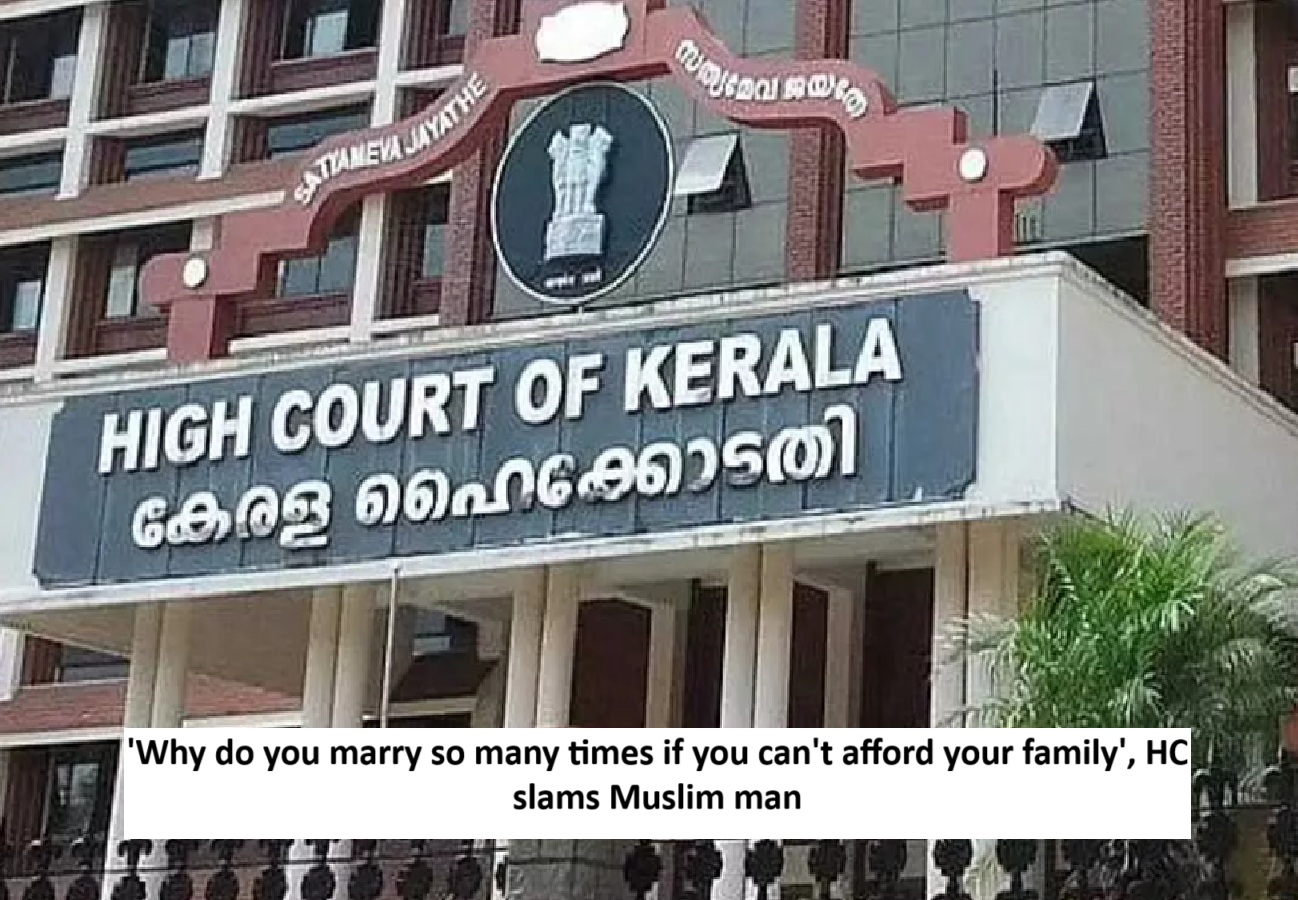
News Topical, Digital Desk : The Kerala High Court made an important observation while hearing a case. The court stated that if a Muslim man is unable to support his wife, he has no right to marry a second or third wife, even under Muslim personal law.
The court made this remark while hearing a petition filed by a 39-year-old woman seeking monthly maintenance of Rs 10,000 from her husband, who earns his living by begging.
If unable to provide for maintenance, there is no right to second or third marriage – Court
The woman alleged that her 46-year-old blind husband, who earns his living by begging, has left her and is living with his first wife, and is now threatening to marry a third wife. Previously, the petitioner had approached a family court, which dismissed her petition, stating that a person who earns his living by begging cannot be ordered to pay maintenance.
The Court stated that while it is true that the defendant belongs to the Muslim community and is taking advantage of their customary law, which, according to them, allows him to marry two or three times. A person who is unable to support a second or third wife cannot remarry, even under Muslim customary law.
Such marriages cannot be recognized – Court
The court further said that the man's successive marriages, when he was merely a beggar, could not be accepted even under Muslim customary law.
The court said, "Such marriages in the Muslim community take place due to lack of education and lack of knowledge of Muslim customary law. No court can recognize the first, second or third marriage of a Muslim man if he is unable to maintain his wives and one of his wives has filed a petition seeking maintenance."
The court cited a verse from the Quran
Citing verses from the Quran, the court said the holy text preaches monogamy and allows polygamy as an exception. "If a Muslim man can provide justice to his first wife, second wife, third wife, and fourth wife, then marrying more than once is permissible," the court said.
Important remarks of the court during the hearing
- The court said most Muslims practice monogamy, which reflects the true spirit of the Quran, while only a small minority practice polygamy and have forgotten the Quranic verses. They should be educated by religious leaders and society, the court said.
- Considering the defendant's plight, the court stated that begging cannot be considered a means of livelihood and that it is the duty of the state, society, and the judiciary to ensure that no one resorts to it. The court emphasized that the state should provide such individuals with food and clothing.
- The court said, "If a blind man is begging in front of a mosque and marrying one after another without knowledge of the basic principles of Muslim customary law, he should be given proper counselling. It is the duty of the State to protect the destitute wives who are victims of polygamy in the Muslim community."
- The court directed that a copy of its order be given to the Secretary of the Social Welfare Department for appropriate action. "The department should provide counselling to the respondent, including through competent counsellors, including religious leaders," it said.
Read More: Indian influencer mistreated in South Korea, Indian Embassy issues advisory; What are the rules?
--Advertisement--

 Share
Share



